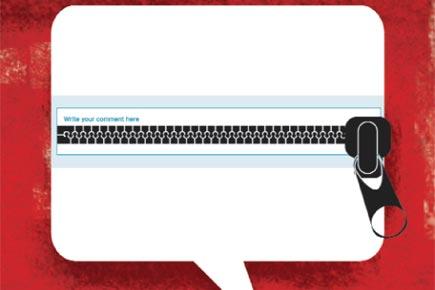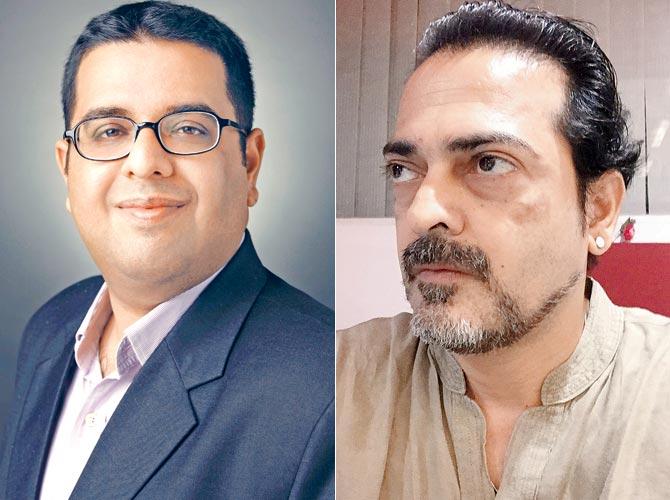With mainstream news sites shutting the venting box, are the armchair gasbags' days numbered


Illustration/Ravi Jadhav
Some time in April last year, independent news website Scroll.in made an announcement that left many readers perplexed.
ADVERTISEMENT
For a digital publication that had consciously decided to not have a facility for readers' comments — the very core of online audience interaction — it seemed rather baffling why they'd go ahead and appoint a readers' editor? It took a long piece by former Economic and Political Weekly editor C Rammanohar Reddy, the man appointed to this new position, to set the record straight. Reddy pointed out why the 'comments facility' had long ceased to be a platform where civil and thoughtful discussions took place.
Last week, when AlJazeera.com announced that it was also disabling its comments section, the growing discomfort that online platforms were feeling with user engagement became more palpable. The facility, AlJazeera.com argued, was being "hijacked by users hiding behind pseudonyms spewing vitriol, bigotry, racism and sectarianism".

Ritu Kapur
AlJazeera is not alone. Reuters.com, TheWeek.com, News.Mic, NPR.org, among others have long employed similar arguments to shut down their comments system. Closer home, this template is slowly winning favour among several editors. Nikhil Pahwa of MediaNama, minced no words when telling this writer that he too has plans to quit this circus of hapless commentating. But how far is such censoring of the reader's voice justified?
'No light, only heat'
"In my view, journalism is no longer about people in newsrooms who are repositories of information and fact, or about one-way communication," says Ritu Kapur, co-founder and CEO, Quintillion Media that runs news site The Quint. "The reader is no longer a passive consumer. He or she interacts very, very deeply with content. I don't agree with not having a comments section."
Naresh Fernandes, editor of Scroll.in, however, disagrees. "Comments are expected to cast light or offer a new perspective on the issue that is being discussed, but most commentators don't do that," he says, justifying why Scroll.in doesn't have a comments section. "Yes, we wanted feedback, but from what we had noticed, comments were clearly not generating any light, but only heat. Often, it was quite destructive," he adds.

Nikhil Pahwa and Saisuresh Sivaswamy
Ashok Hegde, digital media consultant, who has previously been involved with moderating comments for a leading web portal, admits that a large percentage of comments any site receives is just noise — chitchat, trolling or abuse.
Pahwa says that the first major attack on comments came with spam links. While anti-spam filters helped tackle this, a more worrying trend emerged after 2011, where, on his site, the volume of abusive comments saw a dramatic rise.
"We found that good people had stopped commenting, and the comments page had been taken over by vile, abusive people," he says, explaining that the possible reason for why quality commentating had stopped was because of people's preference to use social media as a tool to exchange news. "Instead of people commenting on your site, they were now exchanging views on their timeline, with their own people," he says.
Social media to the rescue
Most news sites feel that since traffic is anyway moving to social media, it's a better platform for readers to engage with articles they publish. "But, the big downside is that you are ceding control of your users and content generated by them to the social media platform. Facebook may drive more traffic to your website, but serious publishers would want to retain control of the data," said Hegde.
The decision for the switch is also more to do with anticipating, and preventing, expensive legal trouble over a stray comment. "Given the boundary-less nature of the Internet, an FIR can be lodged anywhere, not for what a journalist has said but what some idle chap sitting on a charpoy in Manamadurai has posted in the comments section," says Saisuresh Sivaswamy, editor, rediff.com, which was one of the earliest sites to enable instant comments. A discourse on social media, on the other hand, puts the legal liability of the abuse on the said platform, and not on the publisher.
Moderation is good
The pro-comments group considers moderation as a practical solution to the problem. "But, most news sites I know are tight on budgets. Moderating comments needs a team dedicated to keeping the conversation clean," says Hegde, adding that popular sites would need at least three to four members working in shifts.
Scroll.in relies on its Letters to the Editor, published thrice a week, to attract reader participation. "Most people who write are thoughtful and have something substantial to say. It's very funny how simply the act of clicking on a 'Letters to the Editor' button seems to make people think in a different way," says Fernandes.
But, even here, Sivaswamy argues that it's an editorial decision as to which letter runs and which doesn't. "The online medium takes this editorial intervention away, and along with it, some say, the judgement call as well," he thinks.
Rediff.com has introduced a system of two-factor authentication where a user has to validate his mobile number to be able to post on their message boards. "You won't believe how much this has helped in cleaning out our comments section!" says Sivaswamy.
Irrespective of better alternatives coming by, the truth as of today is that the comments box is fast vanishing. "In an era of free-thinking, and Internet, denying someone the opportunity to comment on one's site could seem like a morally wrong thing to do, but legally, it's still a grey area," says Mihir Desai, senior advocate, Bombay high court.
If it is troll-behaviour that has triggered the change, then the effects could be short-term, if anything. As Sivaswamy suggests, the troll is always one step ahead of the game. "You devise a way, he side-steps it; you prevent that, he finds another exit route."
 Subscribe today by clicking the link and stay updated with the latest news!" Click here!
Subscribe today by clicking the link and stay updated with the latest news!" Click here!






